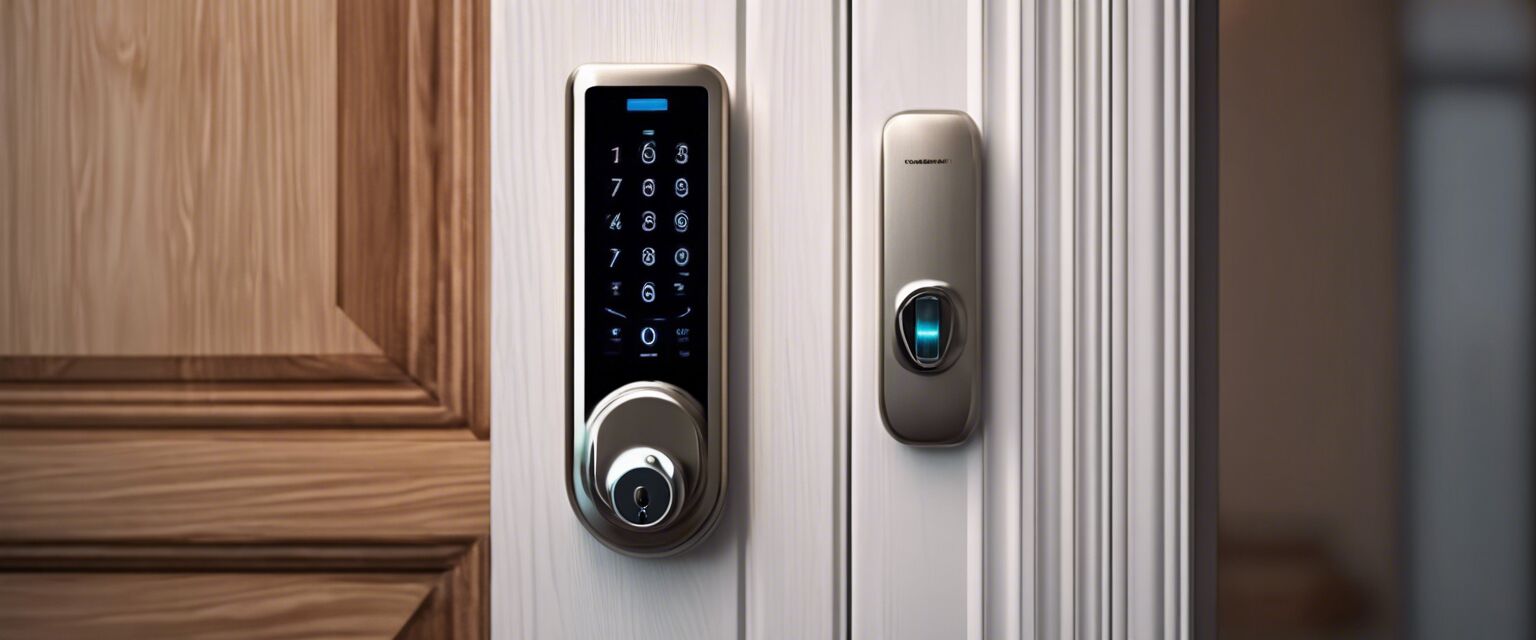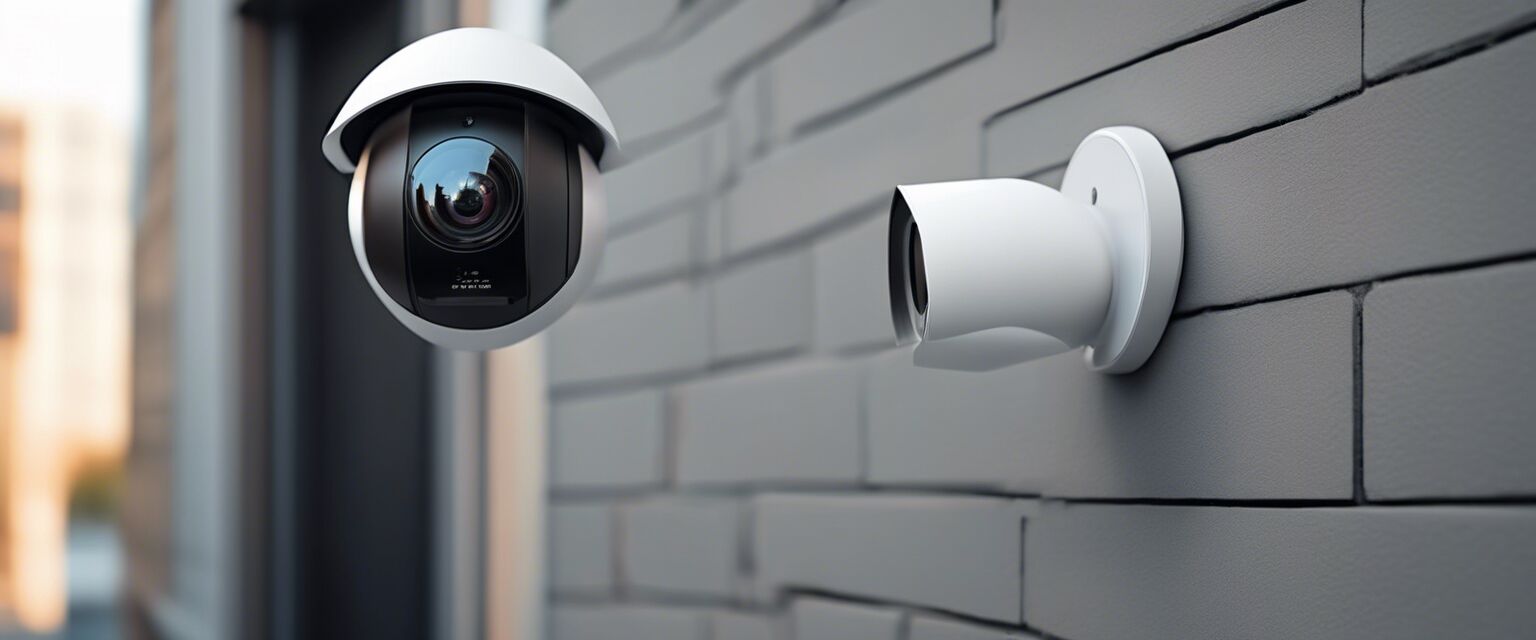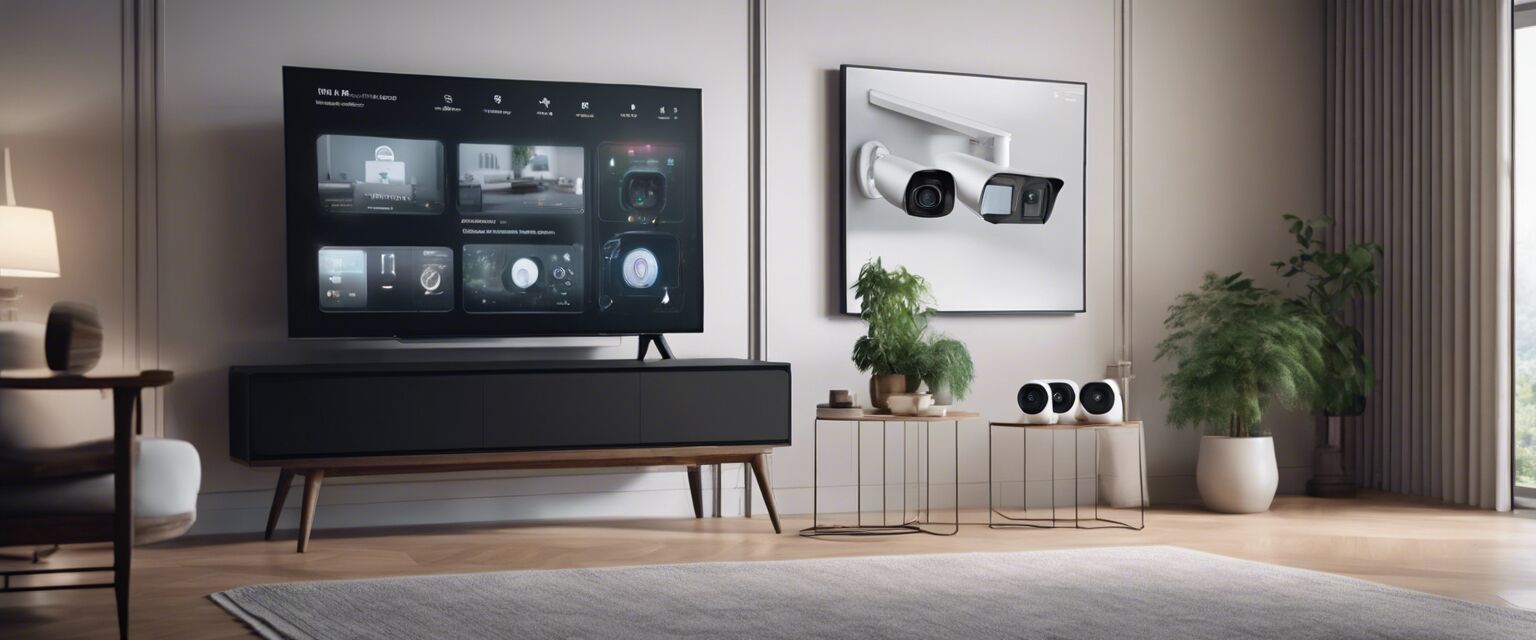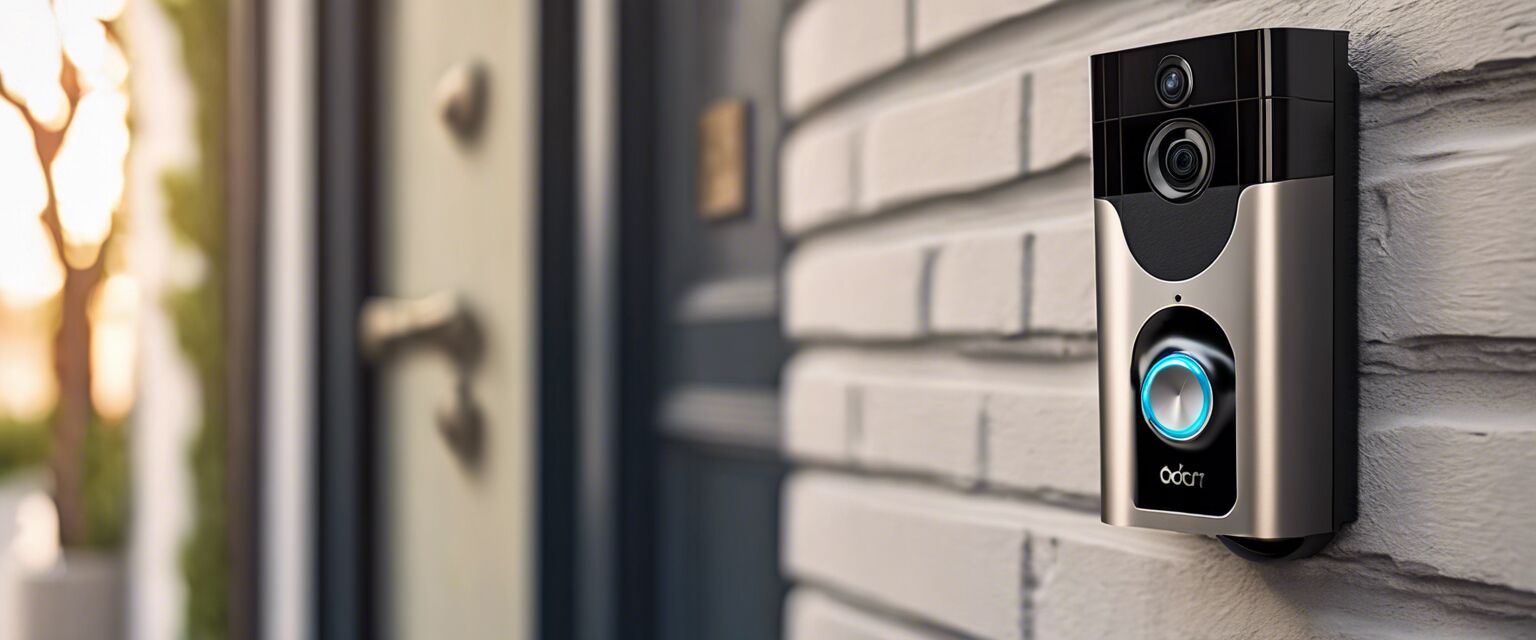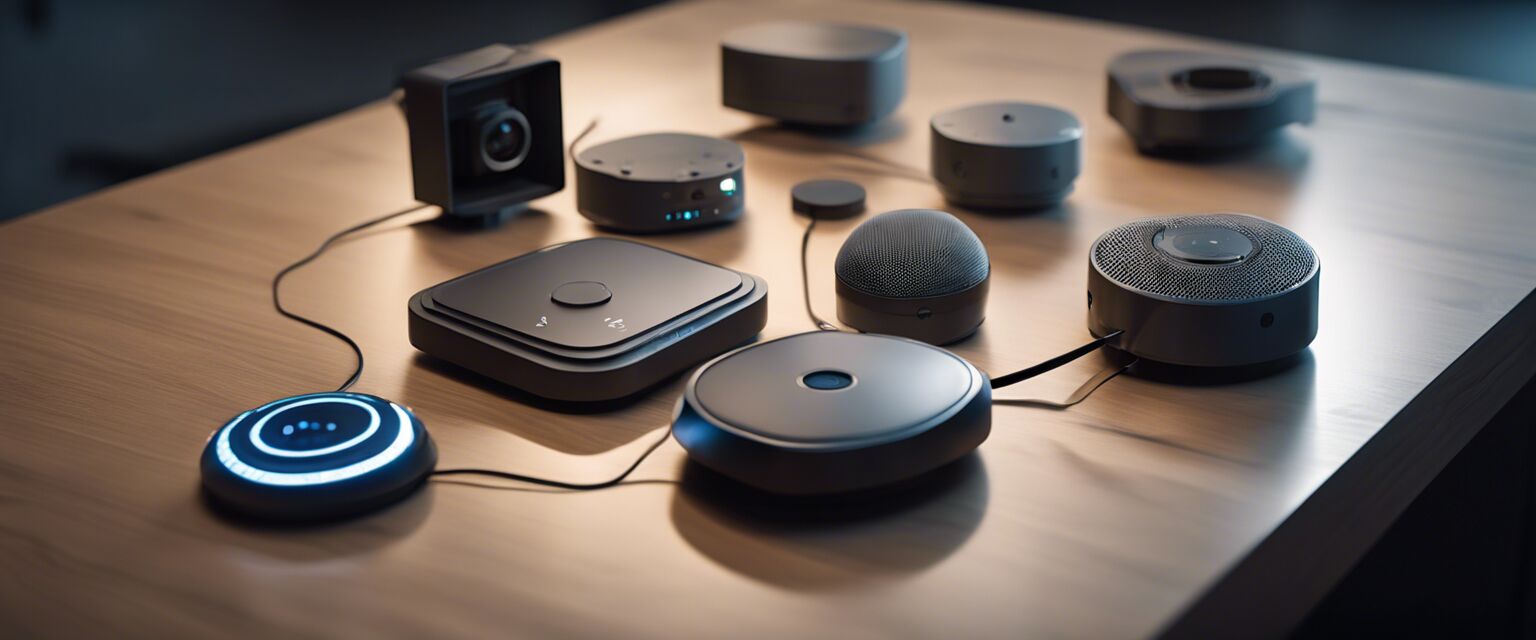
Smart Home Security
Alarm Systems
Key Takeaways
- Smart alarm systems enhance home security through advanced features.
- Integration with other smart home devices is a significant advantage.
- Monitoring options include self-monitoring and professional monitoring.
- Cost varies based on features and installation options.
- Consider user-friendliness and mobile app functionality.
When it comes to safeguarding your home, smart alarm systems are at the forefront of technology. They not only deter intruders but can also provide peace of mind through various features. In this guide, we delve into the essential elements of smart alarm systems and how they can elevate your home security.
What are smart alarm systems?
Smart alarm systems are electronic devices designed to detect unauthorized access to a property. These systems come equipped with various sensors, cameras, and connectivity options, allowing homeowners to monitor their premises remotely.
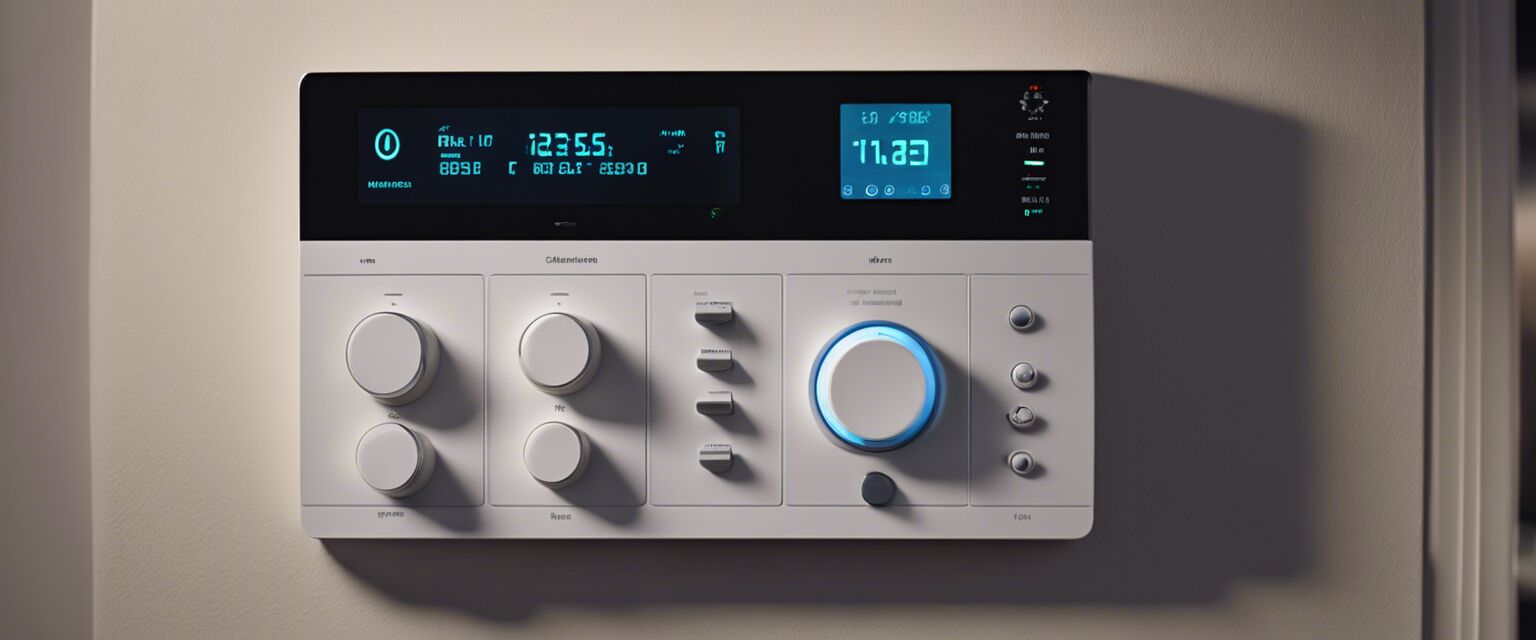
Key features of smart alarm systems
| Feature | Description |
|---|---|
| Motion Sensors | Detect movement within a designated area, triggering alerts. |
| Door/Window Sensors | Monitor the opening and closing of doors and windows. |
| Remote Monitoring | Allows users to check their home security via smartphones. |
| Automated Alerts | Receive notifications through apps or emails about suspicious activities. |
| Integration with Smart Home Devices | Works in conjunction with cameras, lighting, and other smart devices. |
How do alarm systems work?
Smart alarm systems operate through a network of interconnected devices, typically communicating via Wi-Fi or Bluetooth. When a sensor is triggered, it sends a signal to the control panel, which then notifies the homeowner and optionally contacts emergency services.
Types of alarm systems
- Wired systems: Require physical wiring for installation and are often more reliable.
- Wireless systems: Easier to install and can be relocated, but may require battery replacements.
- Hybrid systems: Combine both wired and wireless elements for flexibility and reliability.
Benefits of smart alarm systems
Pros
- Enhanced security features with real-time alerts.
- Remote access to monitor your home from anywhere.
- Integration with other smart devices for comprehensive home automation.
- Potential savings on home insurance premiums.
Cons
- Initial investment costs can be high.
- Reliance on internet connectivity for optimal functionality.
- Some systems may require a monthly subscription for monitoring services.
Choosing the right alarm system
Selecting the best smart alarm system involves considering several factors:
- Your budget and desired features.
- The size and layout of your home.
- Installation processâdo you prefer DIY or professional installation?
- Compatibility with existing smart home devices.
- Customer reviews and support services.
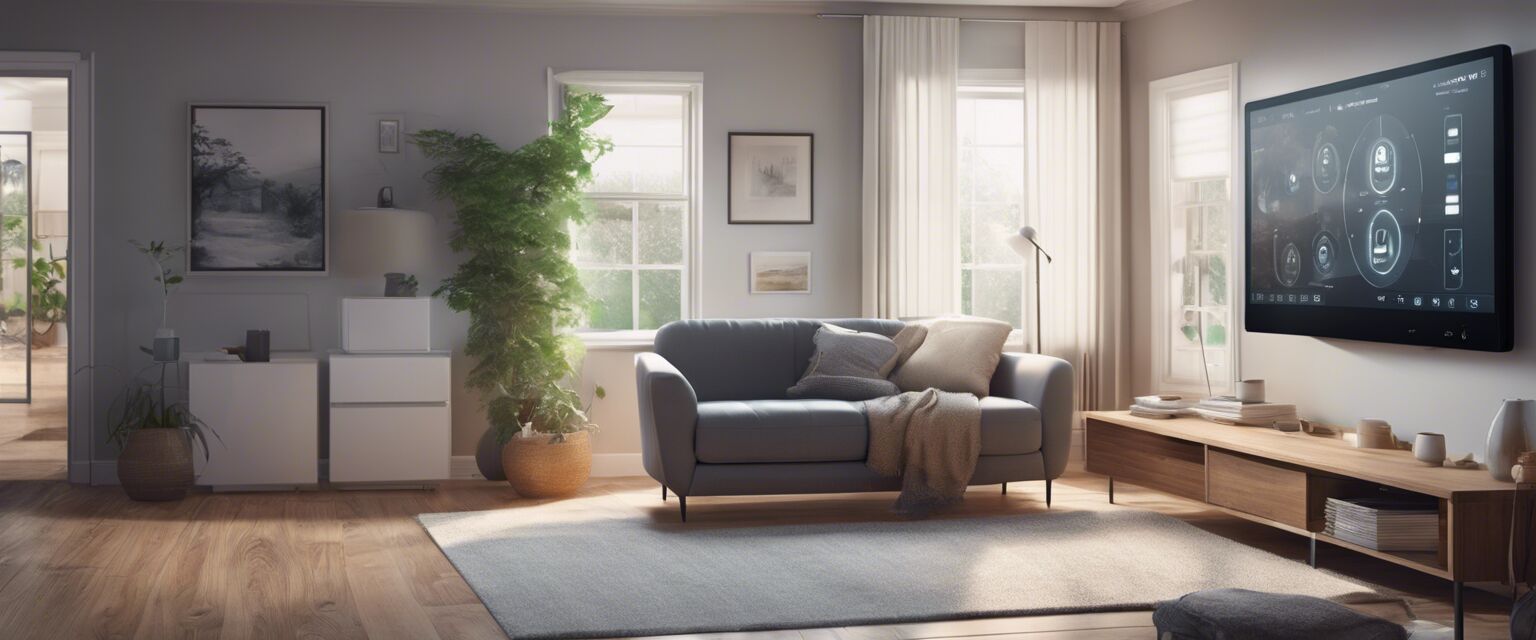
Monitoring options
Smart alarm systems offer various monitoring options:
- Self-monitoring: Homeowners receive alerts directly and can respond without third-party intervention.
- Professional monitoring: A service monitors your system 24/7 and can contact emergency services if needed.
- Hybrid monitoring: Combines self-monitoring with professional backup for added security.
Cost of smart alarm systems
The cost of smart alarm systems can vary significantly based on features and installation types. Typically, prices can range from $100 to $500 for equipment, with additional monthly fees for monitoring services. Below is a breakdown of potential costs:
| System Type | Equipment Cost | Installation Cost | Monthly Monitoring Fee |
|---|---|---|---|
| Wired System | $300 - $500 | $100 - $300 | $15 - $50 |
| Wireless System | $100 - $400 | $0 - $200 | $10 - $30 |
| Hybrid System | $200 - $600 | $100 - $300 | $15 - $40 |
Final thoughts
Smart alarm systems play a crucial role in modern home security, providing homeowners with peace of mind and control over their safety. By understanding the various features, types, and costs associated with these systems, you can make an informed decision that best suits your needs.
Tips for beginners
- Start with a basic system and expand as needed.
- Research brands and read customer reviews for reliability.
- Consider the warranty and customer support options available.
- Ensure your Wi-Fi network is secure to protect your devices.
Explore more about home security
Interested in enhancing your homeâs security? Check out these related areas:

